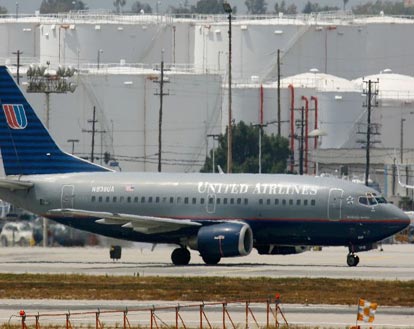The FBI pulled Chris Roberts, a computer security expert, from his United Airlines Flight last Wednesday in Syracuse because of suspicions that he hacked the airplane.
Roberts tweeted referencing the plane’s communication systems suggesting he was going to use his laptop to force the plane’s emergency oxygen masks to deploy. The tweet read: “Find Myself on a 737/800, let’s see Box-IFE-ICE-SATCOM? Shall we start playing with EICAS messages? ‘PASS OXYGEN ON’ Anyone?”
After seeing the tweet, the FBI immediately detained Roberts and seized all of his electronic devices, including his laptop, iPad, hard drives etc. He was questioned for more than four hours.
Roberts insists he never tried to take control of the planes’ controls and that he was just conducting research.
Roberts co-founded a cybersecurity firm called One World Labs and his job is to find weaknesses in computer systems. For many years Roberts focused his work on airplanes – he claims to have explored whether hackers could take over the plane’s control system 15 to 20 times on actual flights.
Roberts connected his laptop to the box underneath his seat each time and he was able to view secure data. “I could see the fuel rebalancing, thrust control system, flight management system, the state of controllers,” he said.
“He found that a hacker could theoretically do it from a passenger seat. Every chair has a tiny computer and screen, and those are plugged into the airplane’s CAN bus. Every vehicle has one. Think of it like a spine. It’s how the brain communicates with the limbs. It’s how your car accelerator talks to your engine’s fuel injector,” according to CNNMoney.
Roberts told law enforcement he vented on Twitter because of his increasing frustration with Airbus and Boeing not listening to his warnings about how easy hacking an airplane can be. Roberts claims anyone can reach the control panels in the plane by plugging in a laptop to the box underneath his or her seat. Roberts claims both companies told him “We’ll deal with it later. We don’t have time. We have other projects.”
Airbus and Boeing both trust their security systems in place. Airbus said it “constantly assesses and revisits the system architecture” to make sure planes are safe. Boeing also noted that “pilots rely on more than one navigation system – so even if a hacker disrupts one of them, pilots can still rely on others make safe decisions overall,” according to CNNMoney.
Roberts said he realized he needs to be more careful about what he says on social media.
“I was probably a little more blunt than I should have been. I’m just so frustrated that nothing is getting fixed,” Roberts told CNNMoney.
